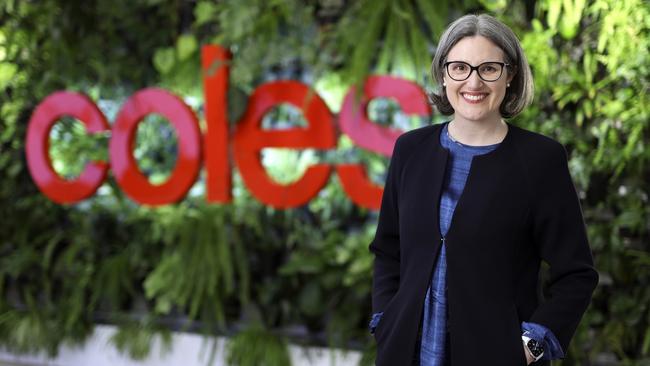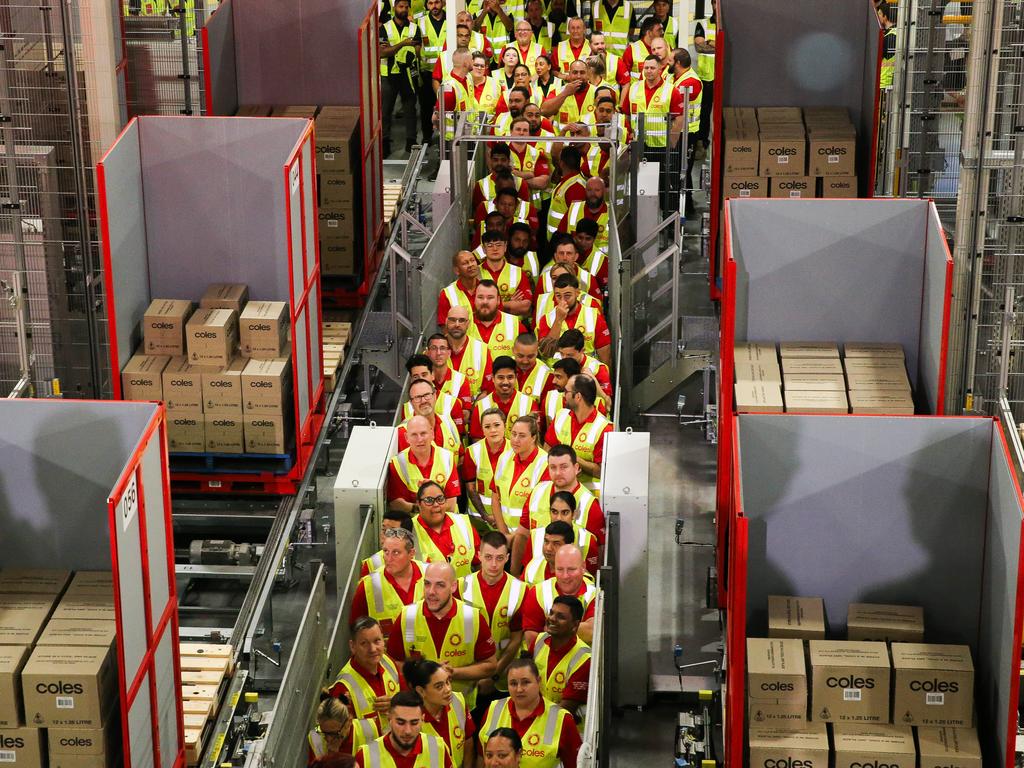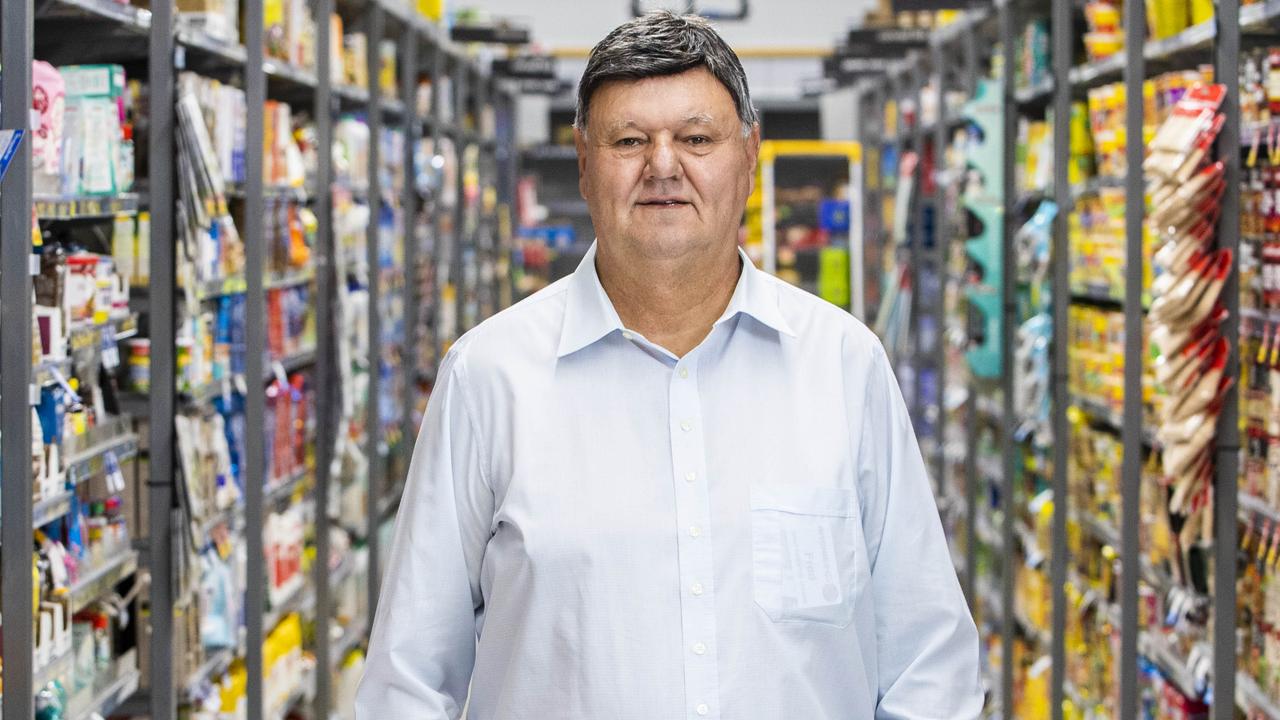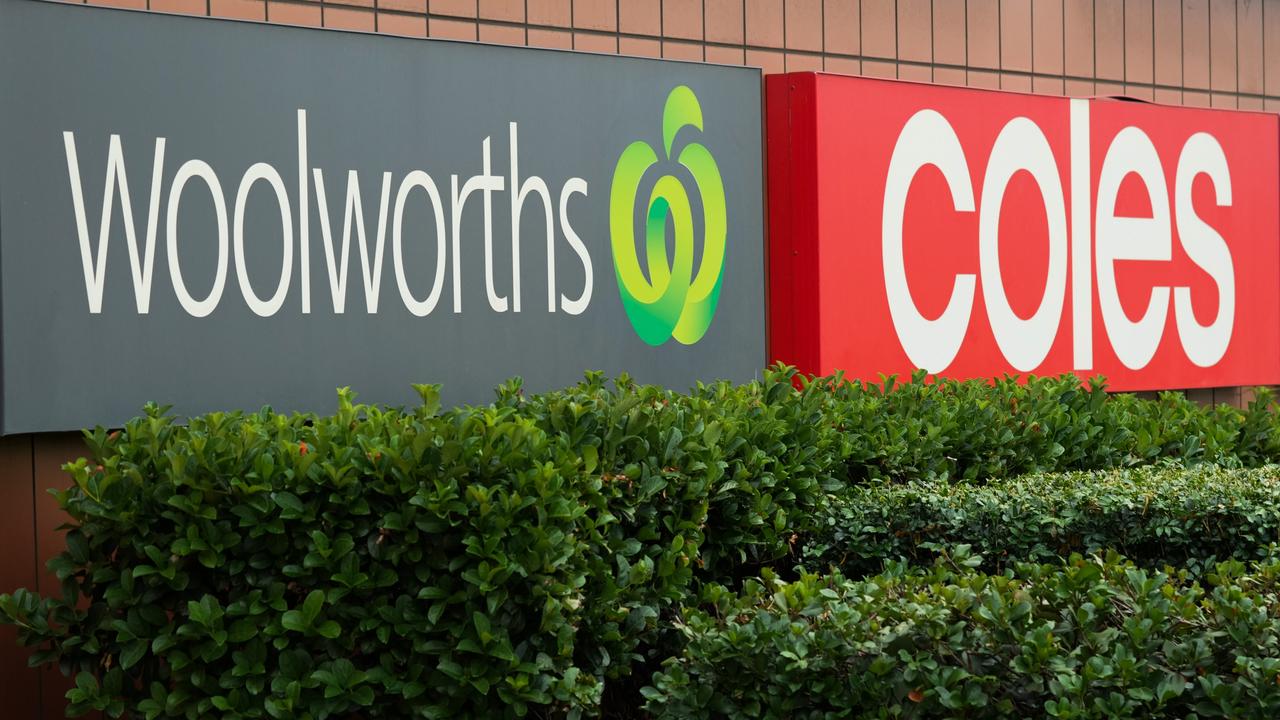Coles has beaten revenue and earnings forecasts for 2024
Consumers looking to save money are helping boost sales for Coles, with that hunt for value on food and groceries here to stay for some time, according to Coles boss Leah Weckert.

Coles boss Leah Weckert believes the more frugal attitude adopted by shoppers when walking down the supermarket aisle will be here for some time as concerns about higher bills drive them to fill their baskets with cheaper cuts of meat, private label groceries and rush for popular food items whenever they are placed on sale.
Ms Weckert said consumers’ strong attraction to discounted food and groceries was greater than it had been in at least five years, while the Coles range of private label goods was growing at double the pace of branded groceries, underlining the importance shoppers were now placing on value and stretching their household budgets.
“Many Australians continue to feel cost of living pressures,” she said.
“Our surveys tell us that mortgages and rents, fuel, rising energy bills and groceries are at the top of factors affecting the household budget.”
Coles on Tuesday reported full-year revenue of $43.68bn, up 4.4 per cent, on the back of a 1.8 per cent lift in net profit to $1.118bn.
Revenue and profit were slightly ahead of consensus market expectations.
“To minimise spend, customers continue to eat more at home, cut back on treats, eat less red meat and reduce their alcohol consumption,” Ms Weckert said.
“It’s no surprise that they are telling us great specials and promotions, competitively priced products and loyalty programs are even more important when deciding where to shop.”
She said she believed this more frugal stance by shoppers was here to stay for at least the short term.
It was unclear when consumers would feel more confident and switch back to eating more at restaurants, with home cooking boosting Coles’s performance over 2024.
“I think it’s hard to call because so much of it is embedded in what is the sense and belief of the consumer,” Ms Weckert told The Australian.
“When we look at the surveys that we do with customers on a regular basis, we’ve been at this sort of elevated level of concern around their ability to cover their needs as costs rise for probably over 12 months now, and in the last month or so we have not seen a drop in a lot of those numbers.
“So I think … a lot of these behaviours are here to stay.”
Ms Weckert said the rise of “meat-free Monday” was a phenomenon that the supermarket was witnessing, while there was also a shift to more eggs in people’s diets – one of the cheapest forms of protein available to consumers.
Coles research is also showing that 90 per cent of shoppers are changing their purchasing habits when walking up and down the supermarket aisle.
Despite these pressures on household budgets, the expansion of the higher-priced ‘‘Coles Finest’’ private label range resonated strongly with shoppers.
That top tier of private label groceries increased revenue by 20 per cent in 2024, showing shoppers are looking for quality as well as value.
However, the supermarket arm’s liquor business, which includes retail banners First Choice, Liquorland and Vintage Cellars, continued to struggle.
Its much weaker performance in 2024, with earnings diving by more than 6 per cent, saw it easily beaten by arch rival Dan Murphy’s and BWS, owned by Endeavour.
Coles blamed the poor performance of its liquor arm on shoppers cutting back discretionary spending on beverages due to “economic pressures”, coupled with the Coles liquor business pivoting away from less profitable bulk sales.

The first of the nation’s two major supermarkets to report its full-year results, Coles’ better performance was also driven by cost savings and a reduction in theft at its stores.
Stock losses had become a problem last year, and Coles responded with greater security at the checkout and investments in stores.
Supermarket gross margin rose 50 basis points, well ahead of some analyst forecasts of a 33bps improvement.
Coles declared a final dividend of 32c per share, up from 30c, and payable on September 25.
Ms Weckert said Coles was increasing efficiency and reducing waste.
“At the same time, we have worked hard to deliver improvements in availability and quality, made significant inroads in addressing loss, accelerated our digital offering, continued to maintain a strong focus on costs and completed the construction of our second automated distribution centre and both our customer fulfilment centres.”

At its supermarkets arm, sales rose 6.2 per cent to $39.042bn as earnings rose 10.5 per cent to $3.487m. Sales in the fourth quarter increased 10.1 per cent, cycling strong growth in the prior corresponding period of 8 per cent.
Sales revenue growth was driven by a positive customer response to the ‘‘Great Value, Hands Down’’ seasonal value campaigns, well executed continuity and collectibles programs and trade events such as Christmas, Easter and Mother’s Day, strong growth in e-commerce and improvements in availability, the company said.
Liquor arm sales rose 2.3 per cent to $3.69bn as earnings fell 6.5 per cent to $261m.
While sales revenue was particularly subdued in the second half, the trajectory improved throughout the period, with sales revenue declining by 0.4 per cent on a normalised basis in the fourth quarter, compared to a decline of 1.9 per cent in the third quarter.
The Coles liquor business was trounced by Endeavour’s Dan Murphy’s and BWS, which grew top line sales at a rate three times that of Coles.
Coles said in the first eight weeks of fiscal 2025, supermarkets sales revenue grew by 3.7 per cent, with positive volume growth and increasing momentum driven by value and its ‘‘Winter of Sports’’ campaigns.
Liquor was again a problem, and in the start to fiscal 2025 its sales declined by 1.4 per cent.
Shares in Coles ended up 31c at $18.77.
The stock is up more than 18 per cent in the last 12 months.






To join the conversation, please log in. Don't have an account? Register
Join the conversation, you are commenting as Logout